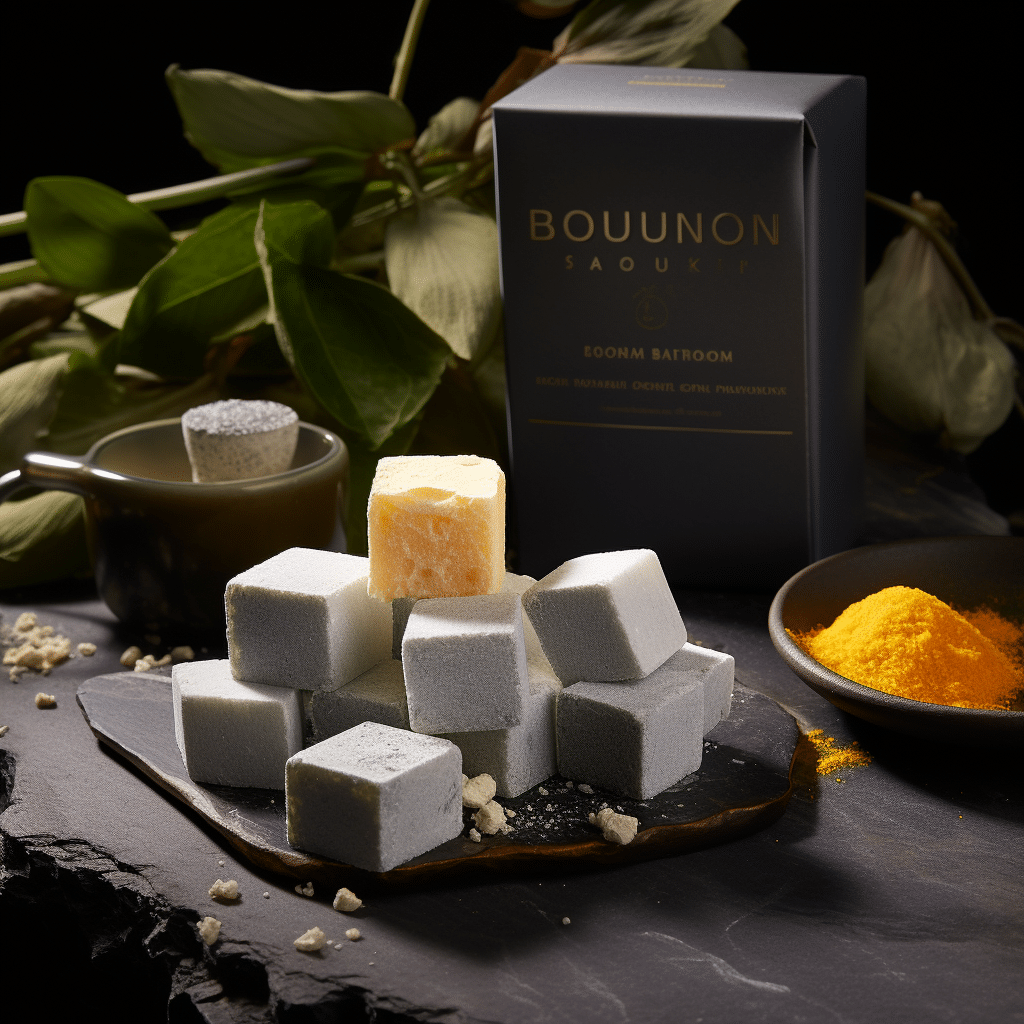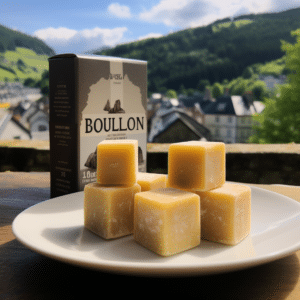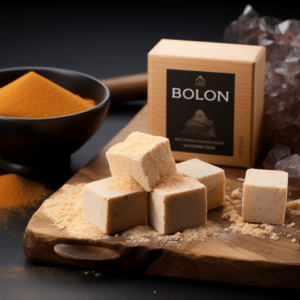
Bouillon Cube Vs. Powder
Bouillon cube Exploring Bouillon Cube and Powder: Origins Usage and Benefits and powder are results of dehydrated meats and vegetables that come in different forms. They contain similar ingredients and nutritional content. The main difference is that bouillon cubes are compressed and shaped into small cubes, while the powder form is when dehydrated meats or vegetables are ground into a powder. In this article, we have a deep look at the differences and similarities in origin, uses, and benefits.

Bouillon Cube Vs. Powder: Overview
Origin
There are differing opinions on who invented the bouillon. Some people claim it was created by French chefs due to its name which means broth in French. Others claim it was invented by English chefs. It remains disputed, but what we know is that it was either invented in England or France. However, bouillon was first commercialized by Julius Maggi, a Swiss food manufacturer, in 1908. In 1910, Oxo company from Britain, and in 1912 Knorr from Germany, followed suit. The three brands Maggii, Oxo, and Knorr, are the most popular worldwide.
Taste
Bouillon cubes and powder have a pleasant umami savoriness with a strong salty taste. Umami is a meaty or savory taste in foods that comes from glutamate, inosinate, and guanylate compounds found in plants and animals. It is one of the five basic distinct tastes. Bouillon comes in diverse flavors that include; beef, chicken, vegetable, lamb, and mushrooms.
Ingredients
Bouillon cubes and powder have similar ingredients, only the form of presentation differs. The main ingredients of bouillon are salt, monosodium glutamate(MSG), hydrogenated fats, spices such as garlic, turmeric, rosemary, parsley, ginger, and dehydrated meat or vegetables.
Uses
Bouillon is common in many households the world over. The brand and name might differ from one region to another, but the ingredients remain largely the same. They are used for flavoring and adding the savory umami taste to sauces, casseroles, curries, stews, and soups. They are also mixed with water to form a broth. You can add your bouillon powder directly to your meal or mix it with water before pouring it. For the cube, you can crumble it over the dish or dissolve it in water, then add.
Nutrition Facts
The nutrition Exploring Bouillon Cube and Powder: Origins Usage and Benefits value in a bouillon cube and powder are similar, but to help you better understand the measurement, we look at the content in one cube versus one tablespoon of powder.
Bouillon Cube
One cube of 4 grams contains;5 calories, 1 gm of carbs, 800 mg of sodium, 1 gram of protein, 0.5gm of fat, and traces of copper, magnesium, calcium, riboflavin, and selenium.
Bouillon Powder
One serving of 100 gms contains; 24 calories, 180mg sodium, 0.8 gm fat, 3 gm carbs, and 1 gm protein with traces of copper, calcium, selenium, magnesium, and riboflavin.
Health Benefits
Bouillon cubes and powder are a good source of minerals and vitamins, which can be beneficial to your body when consumed in moderation.
These benefits are;
- Bouillon fortified with iron may help boost hemoglobin health, countering deficiency that causes anemia. It is suitable for pregnant women and women of child-bearing ages.
- They contain garlic which helps maintain blood pressure, leading to a healthy heart free from heart diseases such as stroke and heart failure.
- They might help in treating yeast infections in women.
- They might help improve eye health.
- Bouillon might help control the growth of stomach cancer cells.
- They might help in the treatment of mouth ulcers.
- Turmeric, a major ingredient in bouillon, has anti-inflammatory properties that help relieve conditions such as rheumatoid arthritis.
- The phytochemicals in bouillon have antioxidant properties, which might help fight free radical cells, thus boosting the immune system.
- They are helpful in weight management as they aid in suppressing appetite and boosting metabolism, which is essential in weight loss.
- The sodium in bouillon helps regulate fluids, water, and ions in the body, as well as improve nerve and brain functions.
- Moderate consumption of bouillon prevents sodium deficiency characterized by the nervous shutdown, nausea, diarrhea, headache, low blood pressure, lethargy, dizziness, and muscular irritation.
Side Effects Of Bouillon
Overconsumption of bouillon is harmful to the body. Excess MSG and sodium chloride in the body can lead to internal organs damage and other side effects, which include;
- High blood pressure could lead to heart diseases and conditions such as stroke, heart failure, and kidney problems.
- Excess consumption of MSG could lead to neurotoxic effects such as numbness, burning sensation, and tingling in toes, fingers, and neck.
- It could also lead to allergic reactions, including; headaches, nausea, diarrhea, heart palpitations, weakness, chest pains, abdominal cramps, and flushing.
- Cerebral edema might lead to coma if not attended to on time.
- Neural tissues and nerves break down.

Storing Bouillon
When properly stored, bouillon cubes and powder have a shell life of 2 years and are safe for a few months after expiration. Like any other dry seasonings, bouillon is best stored in a cool, dry place at room temperature, away from direct sunlight. It does not require refrigeration or freezing. If you notice a change in color, pungent smell, astringent taste, molds, or a change in texture, your bouillon is spoiled. Trash away as consuming spoiled food might lead to food poisoning.
A Summary Of Differences Between Bouillon Cube And Powder
- Bouillon cubes are compressed dehydrated meat or vegetables, whereas powder is ground.
- It is easy to measure bouillon cubes, while it is a bit hard to measure the powder.
- Bouillon powder dissolves instantly, while cubes take a longer period.
- With bouillon powder, you can adjust the measurement to your preferred measure, but with the cube, you use what has been pre-measured.
In conclusion, bouillon cubes and powder are dehydrated meat or vegetables found in different forms. They contain similar ingredients and nutritional value and are used for similar purposes. The choice is highly dependent on personal preferences.